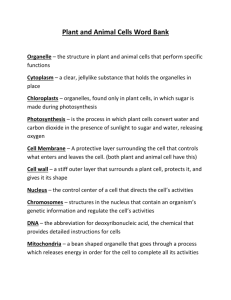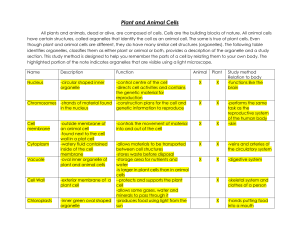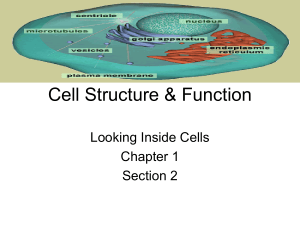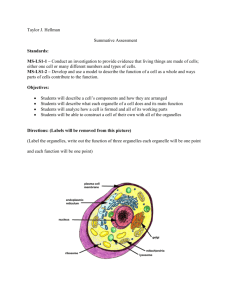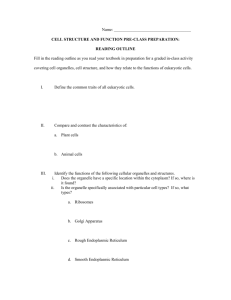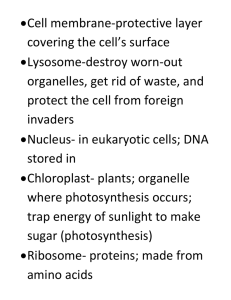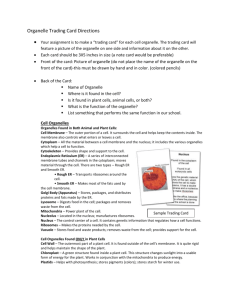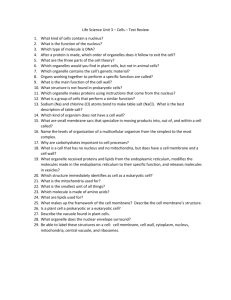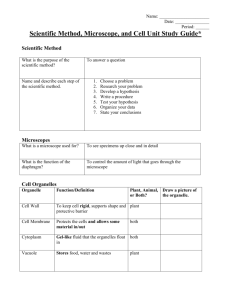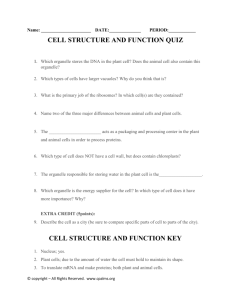Wroclaw Science University Cell Art Competition
advertisement
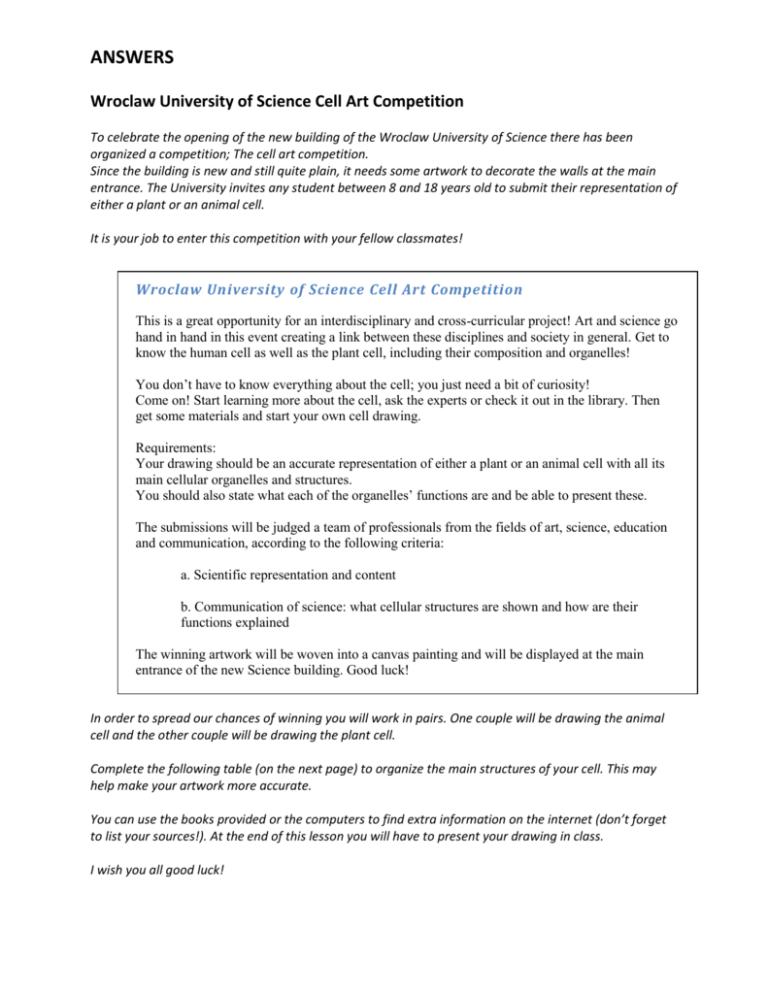
ANSWERS Wroclaw University of Science Cell Art Competition To celebrate the opening of the new building of the Wroclaw University of Science there has been organized a competition; The cell art competition. Since the building is new and still quite plain, it needs some artwork to decorate the walls at the main entrance. The University invites any student between 8 and 18 years old to submit their representation of either a plant or an animal cell. It is your job to enter this competition with your fellow classmates! Wroclaw University of Science Cell Art Competition This is a great opportunity for an interdisciplinary and cross-curricular project! Art and science go hand in hand in this event creating a link between these disciplines and society in general. Get to know the human cell as well as the plant cell, including their composition and organelles! You don’t have to know everything about the cell; you just need a bit of curiosity! Come on! Start learning more about the cell, ask the experts or check it out in the library. Then get some materials and start your own cell drawing. Requirements: Your drawing should be an accurate representation of either a plant or an animal cell with all its main cellular organelles and structures. You should also state what each of the organelles’ functions are and be able to present these. The submissions will be judged a team of professionals from the fields of art, science, education and communication, according to the following criteria: a. Scientific representation and content b. Communication of science: what cellular structures are shown and how are their functions explained The winning artwork will be woven into a canvas painting and will be displayed at the main entrance of the new Science building. Good luck! In order to spread our chances of winning you will work in pairs. One couple will be drawing the animal cell and the other couple will be drawing the plant cell. Complete the following table (on the next page) to organize the main structures of your cell. This may help make your artwork more accurate. You can use the books provided or the computers to find extra information on the internet (don’t forget to list your sources!). At the end of this lesson you will have to present your drawing in class. I wish you all good luck! ANSWERS Cell structure/organelle: Function: Plasma/cell membrane Membrane enclosing the cell Nucleus Membrane-enclosed organelle containing most of the cell's genetic material Organelle active in synthesis, modification, sorting, and secretion of cell products Photosynthetic organelle; converts energy of sunlight to chemical energy stored in sugar molecules Outer layer that maintains cell’s shape and protects cell from mechanical damage; made of cellulose, other polysaccharides, and protein Organelle where cellular respiration occurs and most ATP is generated Cytoplasm: The contents of the cell bounded by the plasma membrane; in eukaryotes, the portion exclusive of the nucleus. Cytosol: The semifluid portion of the cytoplasm (the liquid found inside cells). Complexes that make proteins; free in cytosol or bound to rough ER or nuclear envelope Prominent organelle in older plant cells; functions include storage, breakdown of waste products, hydrolysis of macromolecules; enlargement of vacuole is a major mechanism of plant growth Network of membranous sacs and tubes; active in membrane synthesis and other synthetic and metabolic processes; has rough (ribosome-studded) and smooth regions Cytoplasmic channels through cell walls that connect the cytoplasms of adjacent cells Golgi apparatus Chloroplast Cell wall Mitochondrion Cytoplasm and cytosol Ribosome Vacuole Endoplasmic reticulum (ER) (Rough ER and Smooth ER) Plasmodesmata In plant cells but not in animal cells: -Chloroplasts - Central vacuole - Cell wall - Plasmodesmata Present in Animal cell? yes Present in Plant cell? yes yes yes yes yes no yes no yes yes yes yes yes yes yes no (or a very small one at best) yes yes yes no yes ANSWERS ANSWERS
